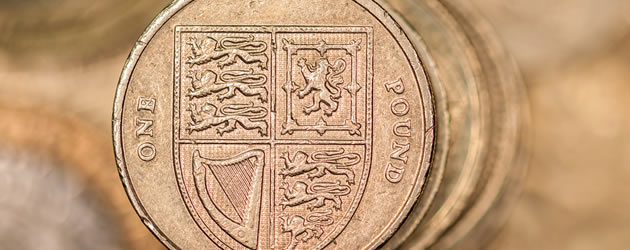EUR/GBP Exchange Rate Falls as UK Economic Confidence Continues to Grow
The Euro Pound (EUR/GBP) exchange rate dipped today. The pairing is currently fluctuating around £0.86.
The Pound (GBP) rose against the single currency today following the stronger-than-expected UK manufacturing PMI for April. The figure beat estimates and rose to 60.9.
As a result, confidence in the UK economy continues to grow, buoying the GBP/EUR exchange rate as hopes grow this trend could improve in May and June, when lockdown restrictions are due to be further eased.
Rob Dobson, the director of IHS Markit, which compile the survey, commented:
‘Signs of Spring have appeared in the UK manufacturing sector, with the PMI hitting its highest level in a decade. Growth of output, order books and employment all gathered momentum and optimism about the year ahead improved further. The domestic market remained the prime source of new orders, as companies reported that the vaccine roll-out and clients’ preparations for the loosening of lockdown restrictions underpinned the expansion. Many expect this process to be supportive during the year ahead as well, raising business optimism and jobs growth to their highest levels for seven years.’
Confidence in the UK economy has also improved because of the nation’s low rates of Covid-19 infections and deaths.
Neil Ferguson, a key epidemiologist and adviser to the Government, has also expressed optimism about the nation’s handling of the coronavirus pandemic.
Mr Ferguson said that the falling infection rates and deaths in the UK had been ‘very encouraging’ news.
Euro (EUR) Exchange Rate Struggles Despite Robust German and Eurozone Economic Data
The Euro (EUR) failed to rise against Sterling despite stronger-than-expected German retail sales in March. Retail sales in the Eurozone’s largest economy rose by 7.7%.
Germany’s relaxation of Covid-19 lockdown measures has helped to rejuvenate the nation’s retail sector.
Analysts at Reuters commented on the data:
‘Sales of textiles, clothing, shoes and leather goods rose 27.7% compared to the same month a year earlier, while retail trade with goods sold in department stores was up 23%.
‘Online retailers continued to benefit from shifting consumer habits with sales up 42.9% compared with a year earlier.’
Yesterday also saw the release of the latest Eurozone’s manufacturing PMI for April. The figure fell below forecasts but remained strong at 62.9.
Chris Williamson, the Chief Business Economist at IHS Markit, said:
‘Eurozone manufacturing is booming, with a new PMI record set for a second month running in April. The past two months have seen output and order books both improve at rates unsurpassed since the survey began in 1997, with surging demand boosted by economies opening up from COVID-19 lockdowns and brightening prospects for the year ahead.’
Euro Pound (EUR/GBP) Exchange Rate Outlook: Could Confidence in the UK Economy Continue to Buoy the Pound?
Euro (EUR) investors will monitor the result of tomorrow’s release of April’s Eurozone composite PMI figure.
Any improvement in the outlook for the Eurozone’s economy would boost the EUR/GBP exchange rate.
Tomorrow will also see a speech from the European Central Bank’s (ECB) Philip Lane, a member of the bank’s executive board.
If Mr Lane is notably upbeat about the outlook for the Eurozone’s economy, then we could see the single currency begin to head higher against its peers.
The Euro Pound (EUR/GBP) exchange rate could continue to suffer this week, however, if the outlook for the UK’s economy continues to improve.



